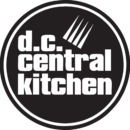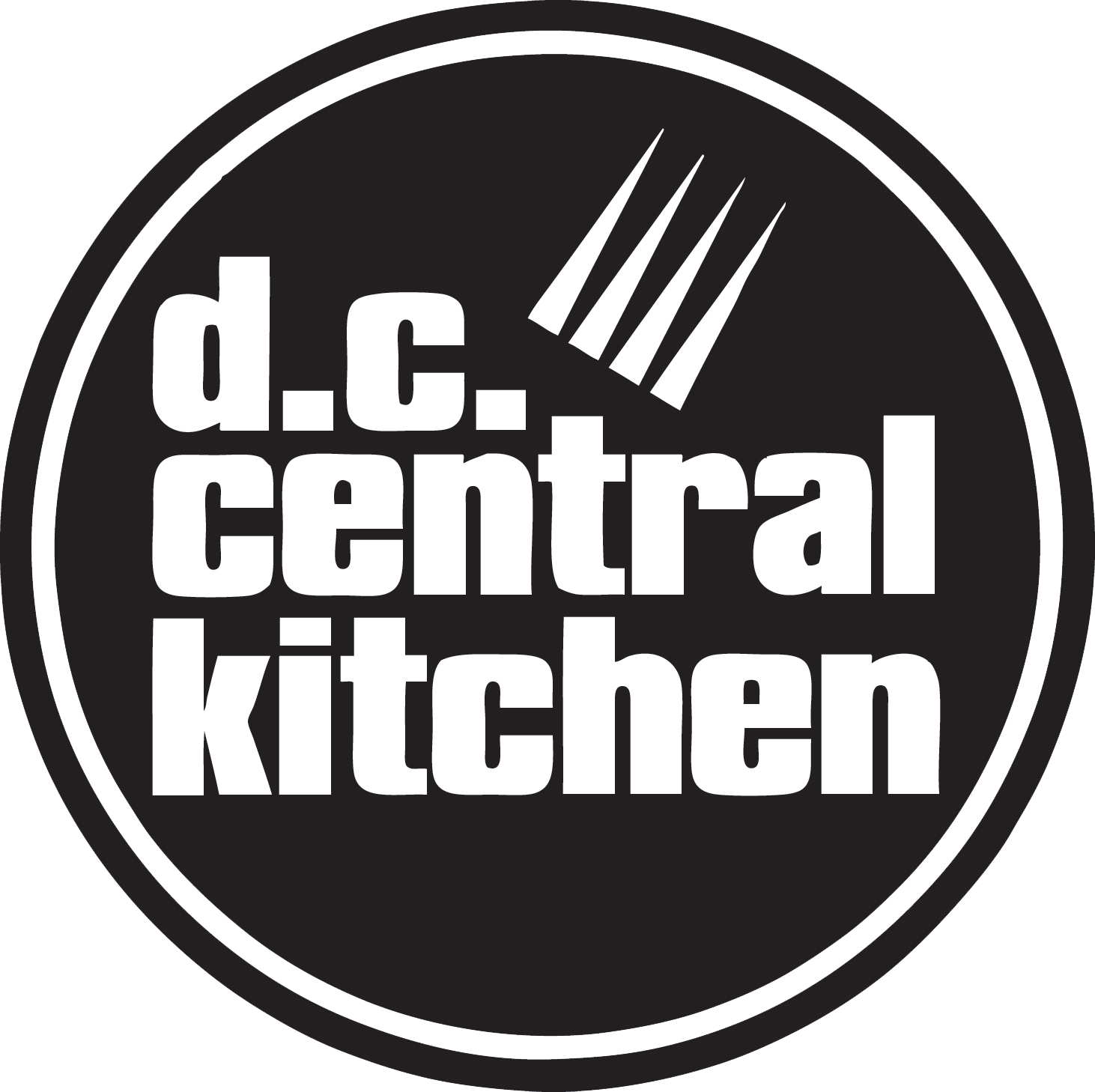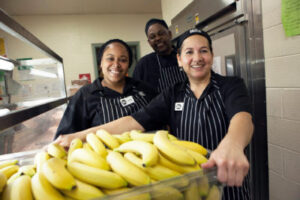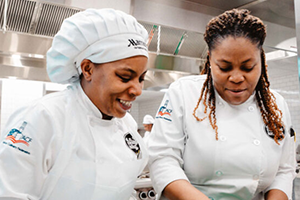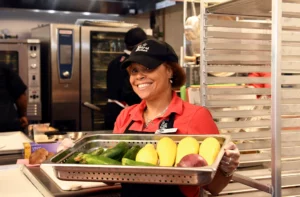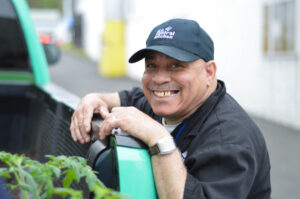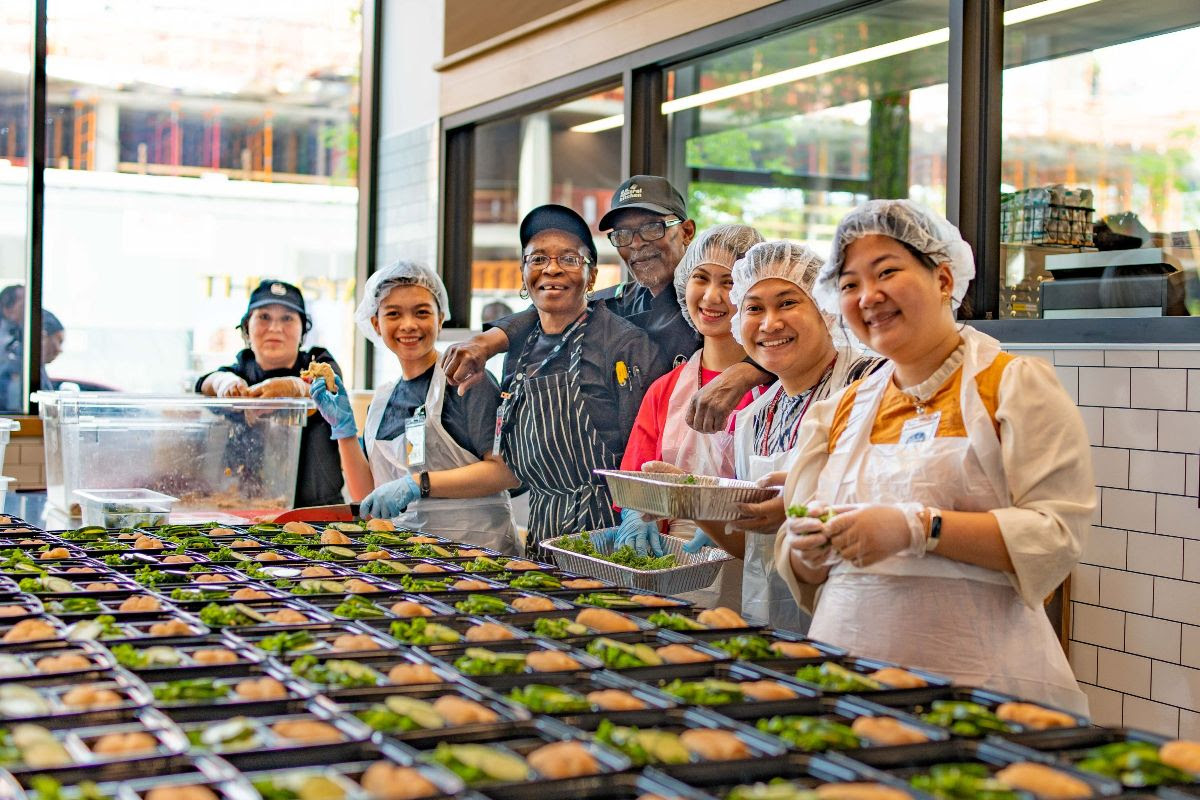September marks Hunger Action Month, a time to advocate for policy changes and inspire action to tackle the stark reality of hunger in America. But at DC Central Kitchen, we take action to end hunger every day – and we’ve always known that no matter how many meals we serve, food alone will never end hunger.
That doesn’t mean healthy, dignified food isn’t a critical part of the equation. Whether it’s providing more than 10,000 locally sourced, scratch-cooked meals to schools, shelters, and nonprofits each day or delivering fresh produce and healthy snacks to 54 corner stores, we use food as a tool to improve health, provide job training, create economic opportunities, and build a more resilient food system 365 days a year.
From our earliest days, DC Central Kitchen has believed that food is a means, not an end to solving hunger. During a recent visit and series of strategic conversations with our staff, retired DCCK Founder and social enterprise pioneer Robert Egger reminded us that “we can’t solve the hunger by simply feeding more people, but if we can influence people by providing living-wage jobs and benefits, then we can put a dent in it.”
Too often, discussions of hunger and food insecurity are too focused on questions of food alone. But, guided by Robert’s relentless focus on root causes, we’ve spent three and a half decades working to prioritize solutions that liberate people from needing charitable food in the first place. By zeroing in on actions, innovations, and policies that prioritize the liberation of those receiving food – rather than the redemption or glorification of those donating and distributing it – DCCK has always sought, in Robert’s words this week, to “give people affected by the problem the opportunity to be a part of the solution.” With more than 120 of our culinary graduates now engaged as DC Central Kitchen employees in nearly every department and aspect of our work, we’re not only creating jobs. We’re expanding pathways for leadership and unleashing our graduates’ talents and ideas as hunger-fighters themselves.
Power-shifting and root-cause solutions might (rightfully) be leading ideas and buzzwords in the charitable sector today, but these efforts have been baked into our model since 1989. That’s when Robert first put his nightclub career on hold to launch the nation’s first ‘community kitchen,’ combining job training, food recovery, large-scale meal production, and intentional volunteer engagement for the first time.
It wasn’t easy, and it wasn’t immediate, but today, DC Central Kitchen has shown that all those ideas – which tie together nourishing people today while building a more inclusive local economy that works for everyone in the long-run – can work and do work. In our new headquarters in Southwest DC, our innovative programs and social enterprises are reaching unprecedented levels of scale. For many, the natural step during a month focused on tangible efforts to fight hunger might be to use our newfound space to push for more meals, more canned goods, or more clients served. That’s not necessarily wrong – but as Robert told our assembled staff, “the true measure of success isn’t how many pounds of food you move or people you feed. It’s how much liberation you can squeeze from every ounce of food you have.”
Our meals matter because of who we feed. But they matter even more because of who gets a great, living wage jobs with industry-leading benefits to prepare them. Because of the farmers who get a fair price from an invested local buyer. Because of the volunteers who got to help prepare that meal with care while working side by side with a DCCK staff member or culinary student they might never have imagined finding something in common with. Because neighbors and friends like you are part of this relentless work to build a stronger, fairer community, day by day and bit by bit. And, to paraphrase Robert, that bit never gets old.
